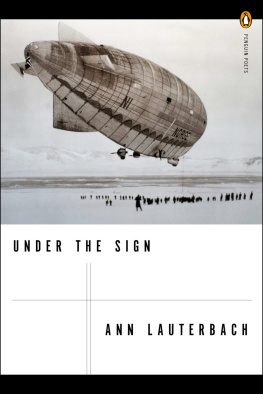Cover
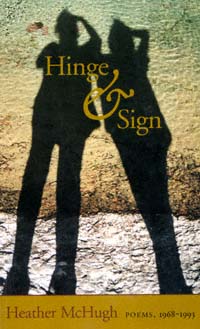
| title | : | Hinge & Sign : Poems, 1968-1993 |
| author | : | McHugh, Heather. |
| publisher | : | Wesleyan University Press |
| isbn10 | asin | : | 0819512168 |
| print isbn13 | : | 9780819512161 |
| ebook isbn13 | : | 9780585376271 |
| language | : | English |
| subject | American poetry. |
| publication date | : | 1994 |
| lcc | : | PS3563.A31H56 1994eb |
| ddc | : | 811/.54 |
| subject | : | American poetry. |
Page i
Hinge & Sign
Page ii
Page iii
Hinge & Sign
Poems, 19681993
Heather McHugh
Wesleyan University Press
Published by University Press of New England
Hanover and London
Page iv
Wesleyan University Press
Published by University Press of New England, Hanover, NH 03755
1994 by Heather McHugh
All rights reserved
Printed in the United States of America 5 4 3
CIP data appear at the end of the book
Acknowledgments appear on page 217
Page v
For Niko
Page vii
Contents
Preface
xiii
after Rilke
xvii
New Poems (19871993)
1
What He Thought
Acts of God
I. Tornado
II. Lightning
Window: Thing as Participle
Curve
Dry Time
Seal
Two-Legged
Fast
Coming
Glimpse of Main Event
My Shepherd
Untitled
The Woman Who Laughed on Calvary
Eastport
Well
Unguent
Some Kind of Pine
Numberless
To Go
Connubial
Prothalamion
The Size of Spokane
Auto
Better or Worse
Two St. Petersburgs
White Mind and Roses
Scenes from a Death
Page viii
32 Adults (1990)
51
Uncollected Poems (19751986)
63
Postcard from Provincetown
Circus
Sebastian's Mirror
A
Just Man
Live
Five Threes (Fast Bike)
Two Holidays
A Night in a World
For a Sad God
The Song Calls the Star Little
Faith
Kind of Poor
For a Good Man
Lifelike
Disappearee's Song
The Act
Where
Household
To a Christian
A Hurricane Can Cast
Denomination
Literal
Poems from Dangers (19681977)
91
Spectacles
Orbit
Pupil
Preferences
In Praise of Pain
The Score
Ozone
To See the Light
A Few Licks
Tendencies
Gig at Big Al's
Page ix
The Most
Outcry
Fable
Patronage
Double Agent
Politics
Fix
Excerpt from an Argument with Enthusiasts, Concerning Inspiration
Reservation
Against a Dark Field
Debtors' Prison Road
It is 70 degrees in late November. Opening a window, you nearly know
Stroke
Solitary's Solace in the Natural Sciences
Poems from A World of Difference (19771981)
121
The Field
The House
Like
The Fall
At a Loss
Mind
Meantime
Blue Streak
Meaning Business
Confessionist
Impressionist
Whoosh
Stall
Hag
High Jinx
North Island Songs
Language Lesson 1976
Toward an Understanding
Inside
Form
Syllables
The Nymph to Narcissus
Page x
When the Future is Black
Message at Sunset for Bishop Berkeley
Breath
Poems from To the Quick (19811987)
Four Poems after Rilke
The Amenities
In a World of Taking, the Mistake
Two Loves
The Trouble with ''In"
Spot in Space and Time
I Knew I'd Sing
Constructive
To God or Man
Bear in English
Animal Song
Take Care
What Could Hold Us
Point of Origin
To the Quick
Bar and Grill
A Physics
Big Ideas Among Earthlings
Or Else
The Ghost
What Poems Are For
The Matter Over
Poems from Shades (19811988)
181
Mox Nox
20200 on 747
What Hell Is
Unspeakable
Inflation
The Lyricist's Lament
The Oven Loves the TV Set
Who Made Her
Earthmoving Malediction
Hole Filler
ID
To Have To
Page xi
Not a Sin
Spilled
Hard
Melted Money
Stairwell
Labor
The Typewriter's the Kind
Place Where Things Got
Round Time
Shades
Thought of Night
From 20,000 Feet
Acknowledgments
217
Page xiii
Preface
Soy un fue, y un sera, y un es cansado.
[I am a was, and a will be, and a tried is.]
Francisco de Quevedo (15801645)
This offering of new poems, together with selections from my past books, comprising some twenty-five years in all, was not so much a labor of love (only the newest-hatched work still bears in relation to its creator sufficient strangeness to be lovable) as it was a work of wariness. For one thing, despite the reassurances of friends and editors, I was subject to the persistent suspicion that all lecteds (se- no less than col-) are more or less directly prepost-humous. For another, I was subject to the subject, and I didn't always like her.
The -lecteds remind us, etymologically, not of their status as writings but rather of their status as readings; and, certainly, to have gone back over decades of the writing of someone I no longer am is to have been engaged in a strange kind of reading: one in which I am doubly implicated. (SomebodyChesterton?said that autocriticism does honor to the writer, dishonor to the critic.) Even given the greatest scrupulousness as to self-regard, there are persistent parallaxes, skews of space and time.
But writing, like reading, implies in any case a very peculiar form of presence. It is presence at another moment. In this anachronism, this unsettled time, the intimacy between writer and reader (unlike other intimacies) seems the closer for its definition in deferral. Taking up any book to read it, how am I with the writer? This with is without the usual conversational confronting; for I identify myself as (I don't identify myself over against) the unfolding. I am with the writer not en face, as an opposite respondent, but tte, as a kind of mind-reader.
And as a writer, how am I with the reader? This is an engagement with a very non-particular someone, an other very like a self, unseeable, a grounding figure which, when I do take the trouble to imagine it (for one need not imagine a being to have one), I imagine as a fellow-imaginer: as an understandingeven an underwritinginmate. Any engagement in acts of reading, between that figure and myself, is engagement without argument, engagement without preliminaries, engagement without (in any of the usual senses) even a meeting of minds: there was never,
Page xiv
after all, a separation. To be a writer ''with" a reader is rather like being, oneself, of two minds, at every turn: hinge and sign. By comparison with this intimacy, the fondest act of physical love takes place between strangers.
Next page

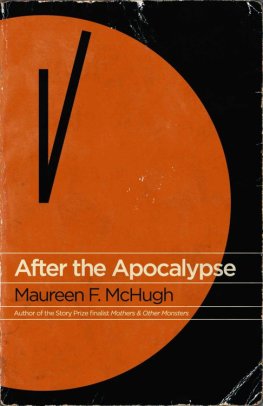
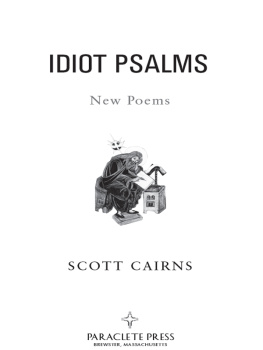
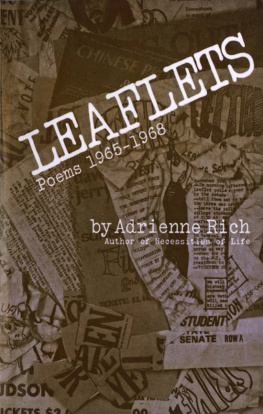
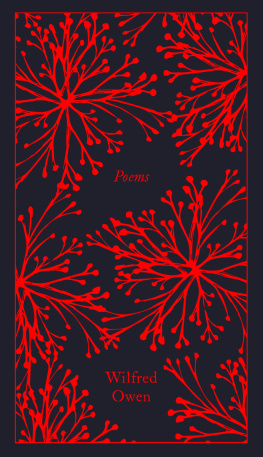

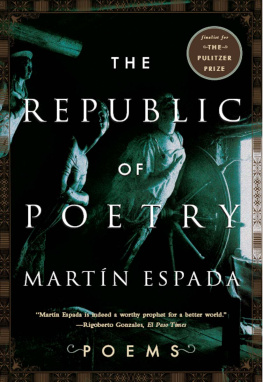

![Paul Muldoon [Paul Muldoon] - Poems 1968-1998](/uploads/posts/book/83661/thumbs/paul-muldoon-paul-muldoon-poems-1968-1998.jpg)
